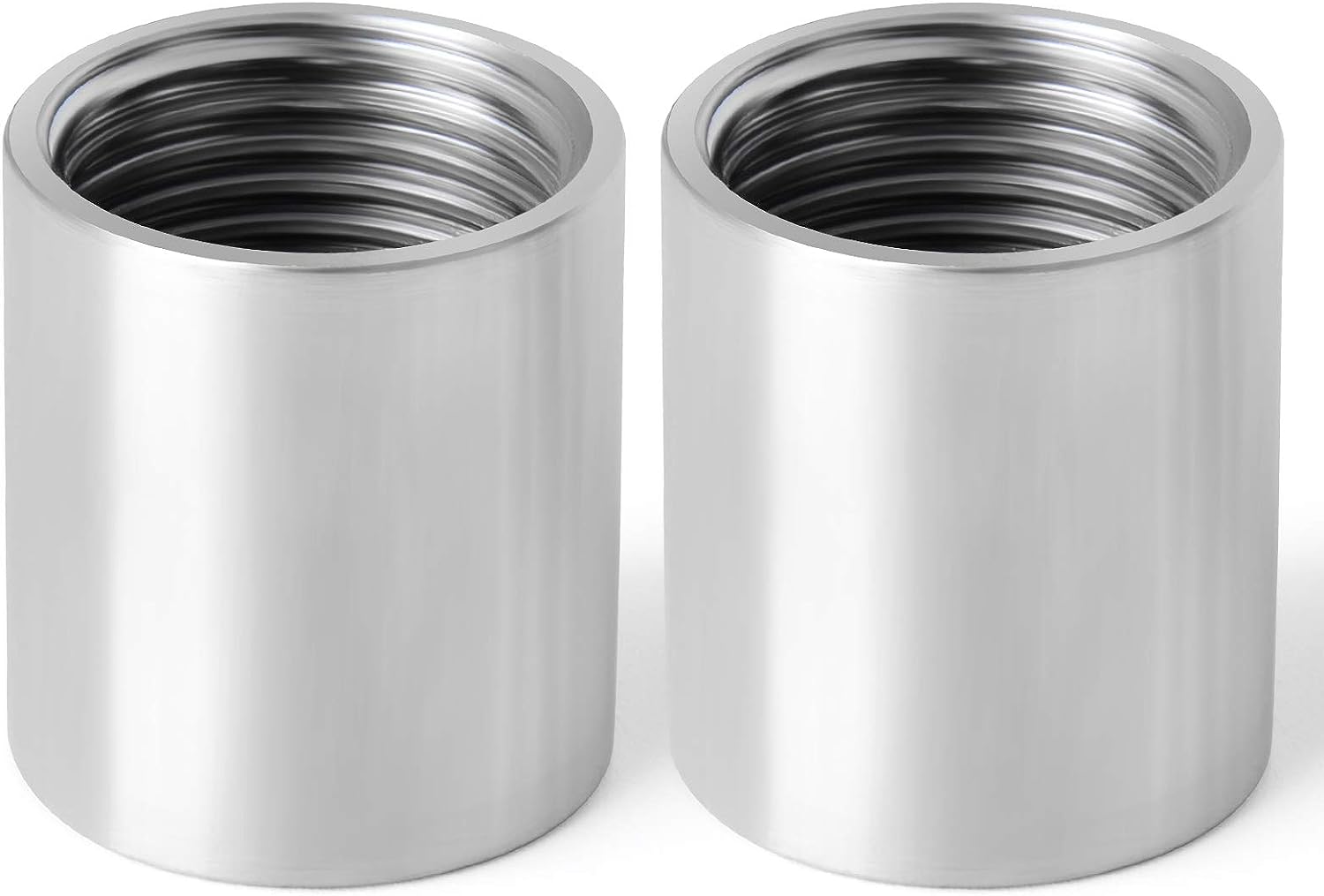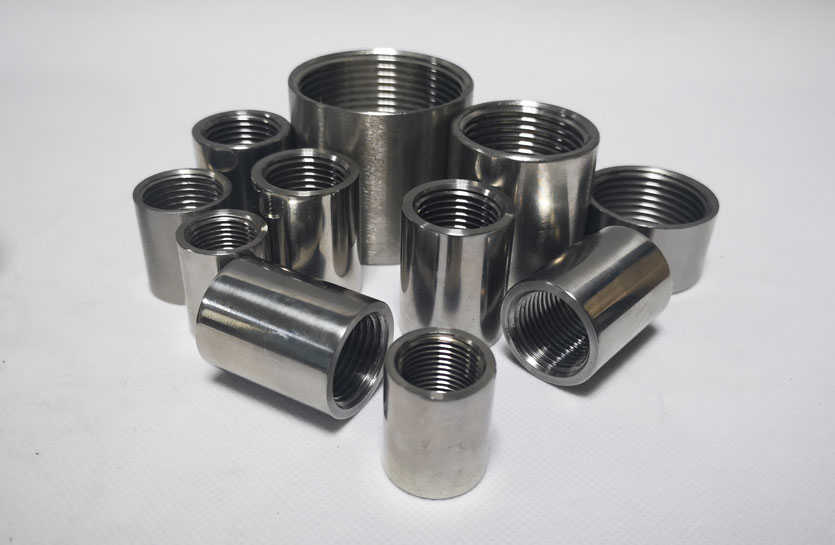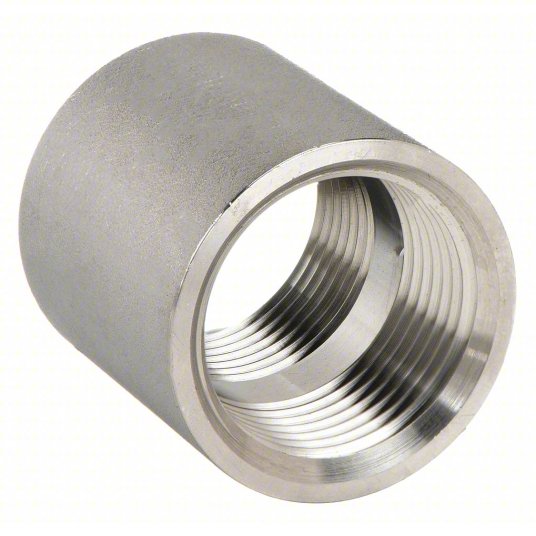Product Description
Forged Steel Pipe Fitting:(Socket Weld Forged Pipe Fittings andThreaded Forged Steel Pipe Fittings)are machined from CHINAMFG forgings. The quality of the fittings is critical in that they are designed to withstand higher pressures. In designing forged fitting, the most important factors are: uniformity of wall, wide bands, sharp threads properly chamfered and unrestricted flow.
Product Details:
| 1. Forged Fittings Type: Elbow, cross, street elbow, tee, coupling, half coupling, cap, plug, bushing, union, outlet, sage nipple, bull plug, reducer insert, pipe nipple etc. |
| 2. Connection: Socket Welded(male or female), Threaded |
| 3. Size Range: 1/8″ – 4″(6mm – 100mm) |
| 4. Pressure Rating: Threaded Forged Pipe Fittings: 2000LBS, 3000LBS, 6000LBS Socket welding Wog 3000, 6000, 9000 LBS |
| 5. Specifications: 1) Standard: ASME B 16.11, MSS-SP-79\ 83\ 95\97 2) Material:Carbon steel: ASTM A105/A694 F42/ 46/52/56/60/65/70/A350 LF3/A350 LF2 Stainless steel: ASTM A182 F304/ F304/ F316/F316L/F317/ 317L/ F321/ F310/ 347/ 904 3) Size of raw material: Dia. 19-85mm round bar. |
| 6. Technology: Forged |
| 7. Packing: Wooden cases or wooden pallet or as per customers requirement |
| 8. Delivery Time: 25 days after order conformed |
| 9. Payment: By T/T or L/C |
| 10. Applications range: Petroleum, chemical, machinery, electric power, shipbuilding, Papermaking, construction etc |
/* January 22, 2571 19:08:37 */!function(){function s(e,r){var a,o={};try{e&&e.split(“,”).forEach(function(e,t){e&&(a=e.match(/(.*?):(.*)$/))&&1

What Industries Commonly Use Stainless Steel Couplings, and Why?
Stainless steel couplings are widely used in various industries due to their excellent properties and benefits. Some of the common industries where stainless steel couplings find significant usage include:
- Food and Beverage: Stainless steel couplings are prevalent in the food and beverage industry because of their high corrosion resistance and hygienic properties. They are suitable for applications where the coupling may come into contact with water, food products, or cleaning agents.
- Chemical Processing: In chemical processing plants, stainless steel couplings are preferred for their resistance to chemical corrosion. They can handle various chemicals and aggressive substances, making them suitable for pumps, mixers, and other equipment in the chemical industry.
- Pharmaceutical: The pharmaceutical industry requires equipment that meets strict hygiene standards. Stainless steel couplings are easy to clean, durable, and resist contamination, making them ideal for pharmaceutical manufacturing processes.
- Oil and Gas: In the oil and gas sector, stainless steel couplings are used in pipelines, compressors, and drilling equipment due to their ability to withstand harsh and corrosive environments, especially in offshore drilling operations.
- Marine: Stainless steel couplings are widely used in marine applications because of their resistance to saltwater corrosion. They are found in propulsion systems, winches, and other marine equipment.
- Aerospace: In the aerospace industry, where weight and reliability are crucial, stainless steel couplings are used in aircraft engines and other critical components to provide high-performance power transmission.
- Pulp and Paper: The pulp and paper industry requires equipment that can handle the moisture and chemical-laden environment of paper mills. Stainless steel couplings are corrosion-resistant and suitable for various applications in this industry.
- Power Generation: In power plants, stainless steel couplings are used in turbines, generators, and other equipment that require reliable power transmission and resistance to harsh operating conditions.
- Mining: The mining industry utilizes stainless steel couplings in conveyor systems, crushers, and other equipment that requires high durability and resistance to abrasive materials.
In summary, stainless steel couplings are chosen for their corrosion resistance, durability, and reliability. They offer the ability to withstand challenging environments and ensure smooth power transmission, making them a preferred choice in a wide range of industries.

Causes of Failure in Stainless Steel Couplings and Prevention
Stainless steel couplings are designed for durability and reliability, but like any mechanical component, they can experience failure under certain conditions. Understanding the potential causes of failure and taking preventive measures can help ensure the longevity and performance of stainless steel couplings. Some common causes of failure include:
1. Overloading: Exceeding the maximum torque or load capacity of the coupling can lead to deformation or breakage. To prevent overloading, it’s essential to choose a coupling with the appropriate torque and load ratings for the specific application.
2. Misalignment: Misalignment between shafts can create additional stresses on the coupling, leading to premature wear and failure. Regularly inspect and adjust shaft alignment to ensure it stays within the coupling’s allowable limits.
3. Corrosion: While stainless steel is corrosion-resistant, it is not immune to corrosion, especially in harsh environments with exposure to corrosive substances. Regular cleaning and maintenance can help prevent corrosion-related failure.
4. Fatigue: Repeated cycles of loading and unloading can cause fatigue failure in the coupling. Ensure that the coupling’s rated fatigue life matches the application’s requirements and replace worn-out couplings promptly.
5. Installation Errors: Improper installation, such as insufficient tightening of set screws or improper keyway fitting, can lead to coupling slippage and failure. Follow the manufacturer’s guidelines for correct installation procedures.
6. Contamination: Foreign particles or debris can get trapped between the coupling’s mating surfaces, leading to uneven loading and premature wear. Keep the coupling and surrounding area clean to avoid contamination-related issues.
7. Temperature Extremes: Extreme temperature variations can affect the material properties of the coupling and lead to failure. Choose couplings rated for the temperature range of the application.
8. Vibration and Resonance: Excessive vibration or resonance can cause stress concentrations in the coupling, leading to fatigue failure. Dampen vibrations and resonance using appropriate mounting and isolation techniques.
9. Material Defects: Occasionally, manufacturing defects in the stainless steel coupling can cause premature failure. Source couplings from reputable manufacturers with a track record of quality and reliability.
Preventive Measures: To prevent failure and ensure optimal performance, consider the following preventive measures:
- Choose the right coupling type and size for the application’s torque and load requirements.
- Regularly inspect and maintain the coupling, checking for signs of wear, misalignment, or contamination.
- Ensure proper installation following the manufacturer’s guidelines.
- Monitor operating conditions and address any unusual vibrations or temperature variations promptly.
- Perform regular shaft alignment checks to avoid excessive misalignment.
- Use protective measures such as seals or covers to prevent contamination and corrosion.
- Monitor coupling fatigue life and replace worn-out couplings before they reach their fatigue limit.
By understanding the potential causes of failure and implementing appropriate preventive measures, users can increase the reliability and longevity of stainless steel couplings in their applications.

Industry Standards and Certifications for Stainless Steel Couplings
Yes, there are industry standards and certifications that govern the manufacturing and performance of stainless steel couplings. These standards ensure that the couplings meet specific quality and safety requirements for various applications.
Some of the common industry standards and certifications for stainless steel couplings include:
- American National Standards Institute (ANSI): ANSI sets standards for various industrial components, including couplings. ANSI standards ensure the couplings’ dimensional accuracy, material quality, and performance characteristics.
- International Organization for Standardization (ISO): ISO provides globally recognized standards for couplings, among other products. ISO standards cover areas like coupling design, materials, and manufacturing processes.
- American Society for Testing and Materials (ASTM): ASTM standards define the material properties and testing procedures for stainless steel couplings, ensuring their durability and reliability.
- European Committee for Standardization (CEN): CEN develops European standards for couplings, adhering to the European Union’s regulations for quality and safety.
- Underwriters Laboratories (UL): UL is a certification organization that tests and certifies couplings for compliance with safety and performance standards. UL-listed couplings have undergone rigorous testing and evaluation.
When selecting stainless steel couplings, it is essential to ensure that they comply with relevant industry standards and carry appropriate certifications. These standards and certifications provide assurance of the coupling’s quality, performance, and safety, making them suitable for specific applications.


editor by CX 2024-03-09
